Vacations as a Longevity Prescription • AI tools for doctors • FDA & Menopause • Open Evidence worth $3.5B
Issue 54: The front page of longevity medicine - curated by doctors, for doctors.
Hey Doc,
I’m writing to you from Paris, on the last day of an incredible trip. It’s been a powerful reminder of why we do what we do: helping people live not just longer lives, but better ones.
In this issue:
✅ Cover Story: Why vacations should be a longevity prescription
✅ The latest AI tools every longevity physician needs to know
✅ Open Evidence raises $210M to accelerate AI for Doctor
✅ FDA expert panel recommends removing black box warnings on vaginal estrogen
Take a deep breath this week. Maybe even plan your own vacation.
Have an amazing week!
Why Vacations Should Be a Longevity Prescription
10 things every doctor should prescribe
We optimize biomarkers. We prescribe diets, supplements, and longevity interventions. But when was the last time we prescribed a vacation?
As I write this, I’m on my last day of vacation- the first real break I’ve taken in years. And here’s my revelation: all the interventions I recommend pale in comparison to what I just experienced.
We spend our lives helping patients live longer, yet many of us are failing to live fully ourselves. I’ve spoken with countless doctors who can’t disconnect. I was one of them. Until now.
I decided to experiment Total Disconnection
No emails. No Zoom calls. No conferences. Just… being.
The first 48 hours were brutal. My nervous system, addicted to stimulation, fought stillness. But on day three, something shifted. My mind cleared. My heart rate slowed. I felt human again, in control again. Proactive not reactive life ;)
Here’s what I did and what you might try:
My List of 10 Experiments That Changed Me
1️⃣ Do a Digital Detox
No scrolling. No posting. Research shows 7 days off social media lowers cortisol by 21% and improves sleep by 33%.
2️⃣ Remember How to Rest
I activated my parasympathetic system, not with tech, but with time. Annual vacations cut cardiovascular risk by 32%.
3️⃣ Eat Local, Real Food
Fresh seafood in Italy. Vegetables from markets. Food as culture, not optimization. This is the true Mediterranean diet and microbiome optimization.
4️⃣ Read and Learn
Take time to read books (fiction, history, philosophy) not just articles and studies. It expands your mind, fuels creativity, and gives your brain the space to reset.
5️⃣ Move Like a Human
Walking for hours along the coast. Biking through Paris. No HIIT. Just natural movement like the centenarians of Sardinia.
6️⃣ Deepen Relationships
No agenda, no networking. Just family, friends, and real conversations. Strong relationships predict longevity better than cholesterol.
7️⃣ Be in Nature
Swimming in the sea. Hiking mountain trails. Nature lowers cortisol and blood pressure, restoring mental clarity.
8️⃣ Explore Culture
Museums in Florence. Architecture in Rome. Art in Paris. Exposure to beauty and heritage expands the mind and gave ma a lot of ideas ;)
9️⃣ Sleep Naturally
No alarms. No tracking devices. Just letting my body lead. Sometimes the ultimate biohack is uncontrolled rest (we depend too much on black, cold, noise-cancelled bedroom)
🔟 Return to Your Vision
With time and distance, I remembered why I chose longevity medicine. The vision replaced the KPIs.
The Data That Changed My Mind
MRFIT Trial: Men with high risk of coronray heart disease who took annual vacations had a 17% lower all-cause mortality and 32% lower CHD mortality.
Framingham Study: Men skipping vacations for years had a 30% higher heart attack risk. Women vacationing less than every six years? 8x higher CHD risk.
We prescribe solutions with weaker evidence than this.
What I’m Changing
Starting now, I’ll recommend vacations seriously
I’ll ask patients: “When was your last real vacation?” If they can’t remember, that becomes the first protocol.
Because here’s the truth: all the biohacks in the world won’t matter if the foundation is cracked. And the foundation is rest.
Maybe the most powerful longevity intervention isn’t something we can measure. Maybe it’s something we can only experience.
Maybe it’s time we all took a vacation.
AI tools for longevity physicians
“It’s coming into medicine fast and hard.” That was DS’s take as the group dove into a lively discussion on the role of AI in research, clinical decision-making, and even patient engagement.
Several physicians shared how they are integrating tools like OpenEvidence and Examine.com into their workflows:
DS uses OpenEvidence daily for podcast prep and Instagram content, calling it “a better meta-search engine than PubMed for clinicians.”
NP and ME echoed its value for quick literature searches.
AV, however, cautioned that while OpenEvidence excels in content licensing, it wasn’t designed for deep reasoning or innovation: where foundational models and raw LLMs may still lead.
TP added that Perplexity is his go-to for references, though OE’s partnerships make it more reliable in some contexts.
The conversation also touched on AI’s limits. As SM noted, tools relying heavily on guidelines may fall short in complex, individualized longevity care. Others agreed that AI should augment (not replace) clinical reasoning.
A highlight? OS shared a free course on prompt engineering for physicians and proposed creating a Longevity Docs AI Prompt Library a resource to help doctors ask better questions and extract meaningful insights from LLMs.
This reflects a growing consensus: AI is here to stay, but the key to leveraging it lies in clinical wisdom + tech fluency.
Want to be part of the WhatsApp group?
Join 400+ Longevity Docs exchanging protocols, insights, and clinical breakthroughs in real time.
Utility of Glucagon-Like-Peptide-1-Receptor Agonists in Mast Cell Activation Syndrome
A recent article in The American Journal of the Medical Sciences highlights the potential of glucagon-like peptide-1 receptor agonists (GLP-1RAs) as a novel therapy for mast cell activation syndrome (MCAS). Preliminary observations suggest these agents may reduce inflammatory symptoms and improve metabolic regulation in MCAS patients. However, the authors call for randomized controlled trials to confirm efficacy and determine optimal dosing strategies for this emerging application. The American Journal of the Medical Sciences
Colchicine in Patients with Chronic Coronary Disease
A randomized trial published in The New England Journal of Medicine found that low-dose colchicine (0.5 mg daily) significantly reduced the risk of cardiovascular events in patients with chronic coronary disease compared to placebo. As an anti-inflammatory agent, colchicine may play a critical role in mitigating residual inflammatory risk (a key driver of atherosclerosis) even in patients already receiving standard therapies. These findings position colchicine as a promising adjunct in secondary prevention strategies for cardiovascular health. NEJM
Relationship between uric acid and depression in American adults
A recent study published in Frontiers in Psychiatry explores the relationship between serum uric acid levels and depression in American adults, suggesting a potential link between the two. Uric acid, long studied for its role in oxidative stress and neuroprotection, may influence mood disorders through its antioxidant capacity and effects on neurotransmission. However, the findings are correlational, and the authors emphasize the need for further research to determine causality and clarify whether uric acid is a protective factor or a marker of metabolic dysregulation contributing to depression. Frontiers Psychiatry
Plasma proteomics links brain and immune system aging with healthspan and longevity
Plasma proteomics can estimate the biological age of 11 organs and predict future diseases and mortality. An aged brain triples Alzheimer’s risk (like APOE4), while youthful brains and immune systems halve mortality risk. These findings position plasma proteins as powerful tools for monitoring organ health and targeting longevity interventions. Nature Medicine
OpenEvidence raises $210M at a $3.5B valuation
OpenEvidence, the clinician-facing AI medical assistant, secured $210 million in Series B funding led by Google Ventures and Kleiner Perkins. With over 40% adoption among U.S. physicians and supporting 8.5 million clinical consultations per month, the platform emphasizes real-time evidence-based medicine and just launched DeepConsult, an AI assistant for PhD-level synthesis of clinical data.
Camino Partners to invest $350M in consumer health & longevity
Daniel Lubetzky (founder of Kind snacks) is committing $350 million over five years via Camino Partners. Investments focus on scalable consumer health businesses within the longevity sphere such as fitness, medical spas, and home-healthcare providers, with average checks between $20–80 million The Wall Street Journal.
FDA Expert Panel Recommends Removing Black Box Warnings on Vaginal Estrogen
A U.S. FDA advisory committee convened on July 17, 2025, and recommended removing the “black box” warning—currently the strongest FDA caution—from low-dose vaginal estrogen therapies. These warnings were originally based on systemic hormone data (from the 2002 Women’s Health Initiative trial), not the localized treatments used today. Panelists emphasized the harms of outdated warnings and highlighted the safety profile of topical estrogen in reducing risks like heart attacks and bone fractures. The same group also urged regulatory support for female-specific testosterone products, suggesting an expanding FDA openness toward modernizing hormone therapy labels
Epicore Biosystems Raises $32M Series B
Epicore Biosystems expanded its Series B to $32M to scale its sweat-sensing wearables and cloud analytics globally. Already used by PepsiCo, the U.S. Army, and Chevron, the tech now targets biomarkers for stress and kidney health, positioning itself as a tool for preventive longevity care.
Longevity Conferences Calendar
ARDD: Coppenhagen, August 25-29
Longevity Docs Peptides Mastermind: New York, October 4
Zenos Health Summit: Riyadh, October 23-25, 2025
Longevity Clinic Roundtable: Novato, December 6-8, 2025
A4M: Las Vegas, December 12-13
Longevity Docs Cannes: June 10-11, 2026
Hormones Mastermind Replay
For the first time, get full online access to the entire event:
✔ 10 expert-led modules
✔ Real-world protocols and case studies
✔ On-demand viewing, anytime, anywhere
No fluff, no travel: just pure, actionable hormone and longevity education.
Replay Pass: $295
Why every doctor should be a longevity doctor.
The Movement
Longevity Docs is the world’s leading collective of physicians advancing longevity medicine through education, clinical research, advisory, and exclusive experiences. With over 400 members in 50+ countries, we’re building the global infrastructure for evidence-based, personalized longevity care.
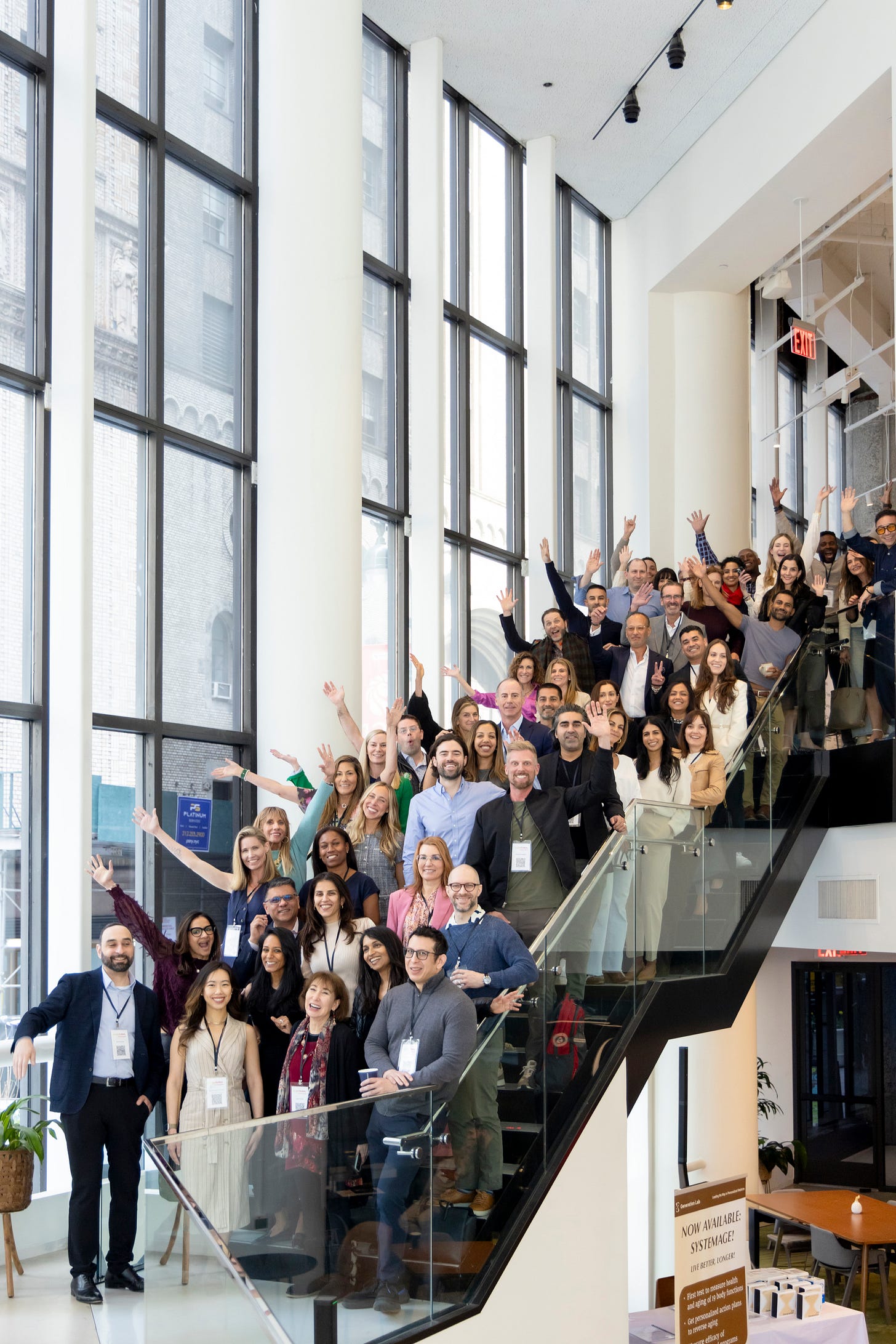
Why “Longevity Docs”?
Because we believe longevity is not a specialty — it’s a human right.
The future of medicine is proactive, not reactive. It's interdisciplinary, not isolated. It’s collaborative, data-driven, and deeply human. And it starts with us — the physicians who dare to redefine what care looks like across the decades of a patient’s life.
“Longevity Docs” isn’t just a name. It’s a statement of purpose.
Our Ecosystem
Physician Network
A trusted global collective of longevity-focused doctors exchanging protocols, referrals, and real-world clinical outcomes.Education & Certification
Earn your Certified Longevity Physician™ designation through our advanced curriculum, live masterclasses, and continuous learning tracks.Decentralized Research
Lead or participate in multicenter clinical trials and patient registries, accelerating evidence generation for healthspan optimization.Strategic Advisory
We partner with vetted longevity companies, life-science, tech, and clinics to help them grow.Global Events & Experiences
Access exclusive gatherings like the NYC Mastermind and the Cannes Longevity Summit & Awards
Who It’s For
Doctors → Join the club, get certified, grow your practice
Health Systems → Implement clinical longevity programs
Brands & Startups → Validate products, find advisors, run trials
Investors → Gain early access to insights, doctors, and deal flow
Subscribe to the Longevity Docs Newsletter
Stay connected with the backstage of the Longevity Docs community, a network of over 400 physicians spanning 50 countries, united in our mission to democratize longevity medicine. Explore the latest in evidence-based longevity care, gain exclusive access to physician insights, and join us in shaping the future of this transformative field.
Newsletter Disclaimer:
The content shared in this newsletter, including the "Buzz in the Chat" section, is for educational purposes only. It is derived from peer-to-peer conversations among physicians within the Longevity Docs community and is intended to inform and engage our network of doctors.
Please note that these discussions do not reflect the official position of Longevity Docs and are not to be interpreted as medical advice or recommendations. The insights and opinions shared are those of individual physicians and are provided as part of our mission to foster collaborative learning and dialogue among healthcare professionals.
We encourage all readers to consult qualified healthcare professionals for personalized medical advice and to evaluate any medical information in the context of their clinical expertise and patient needs.



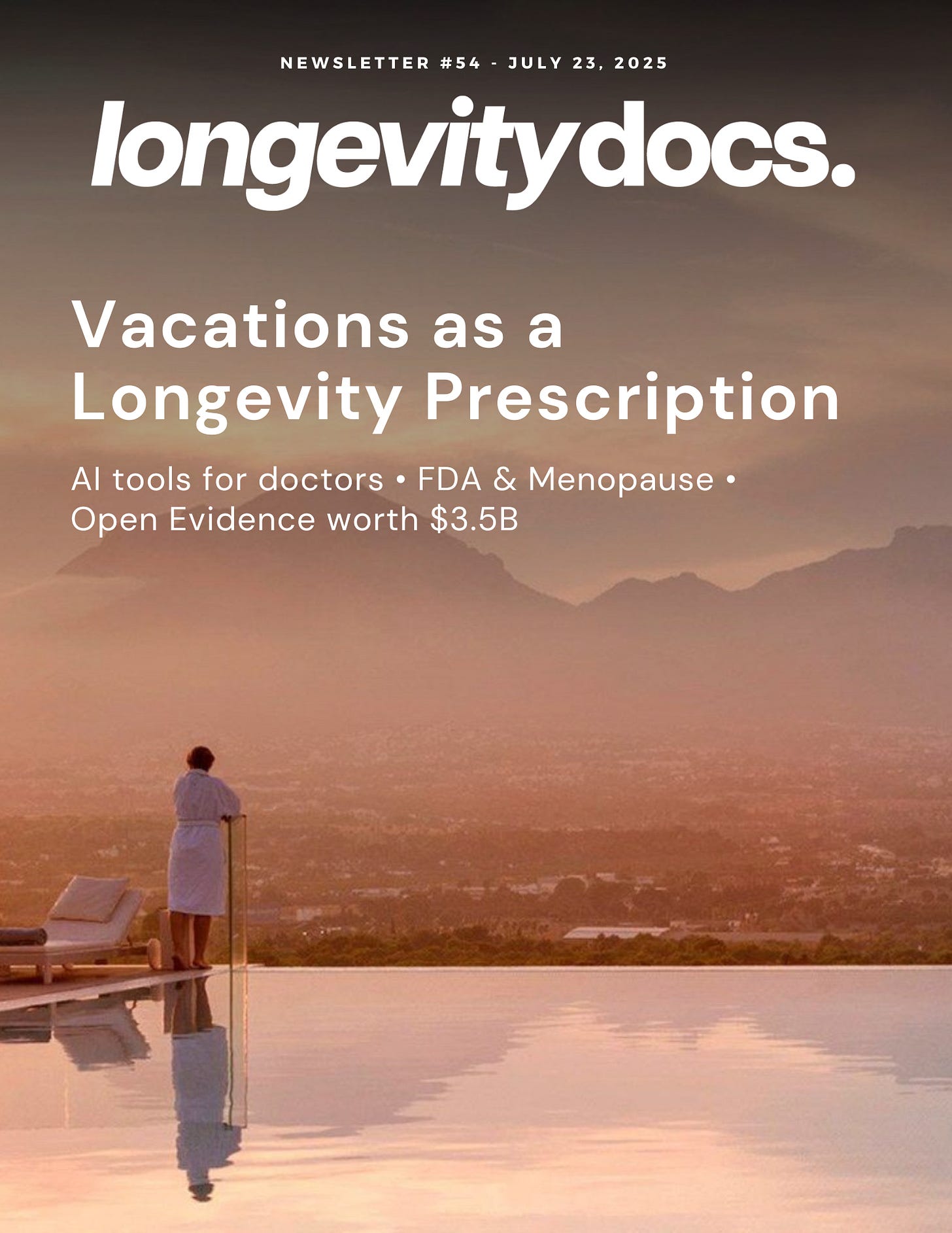
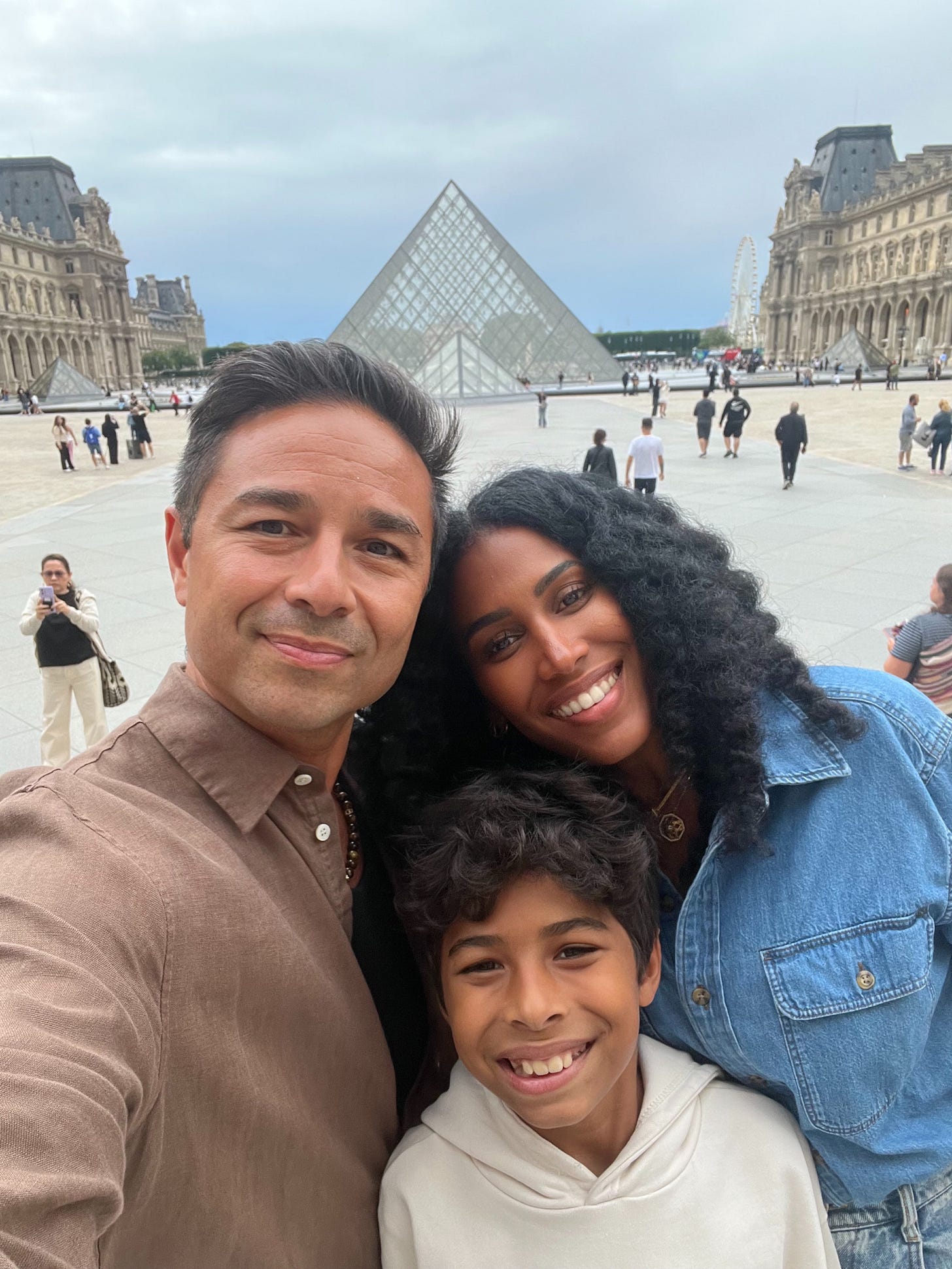




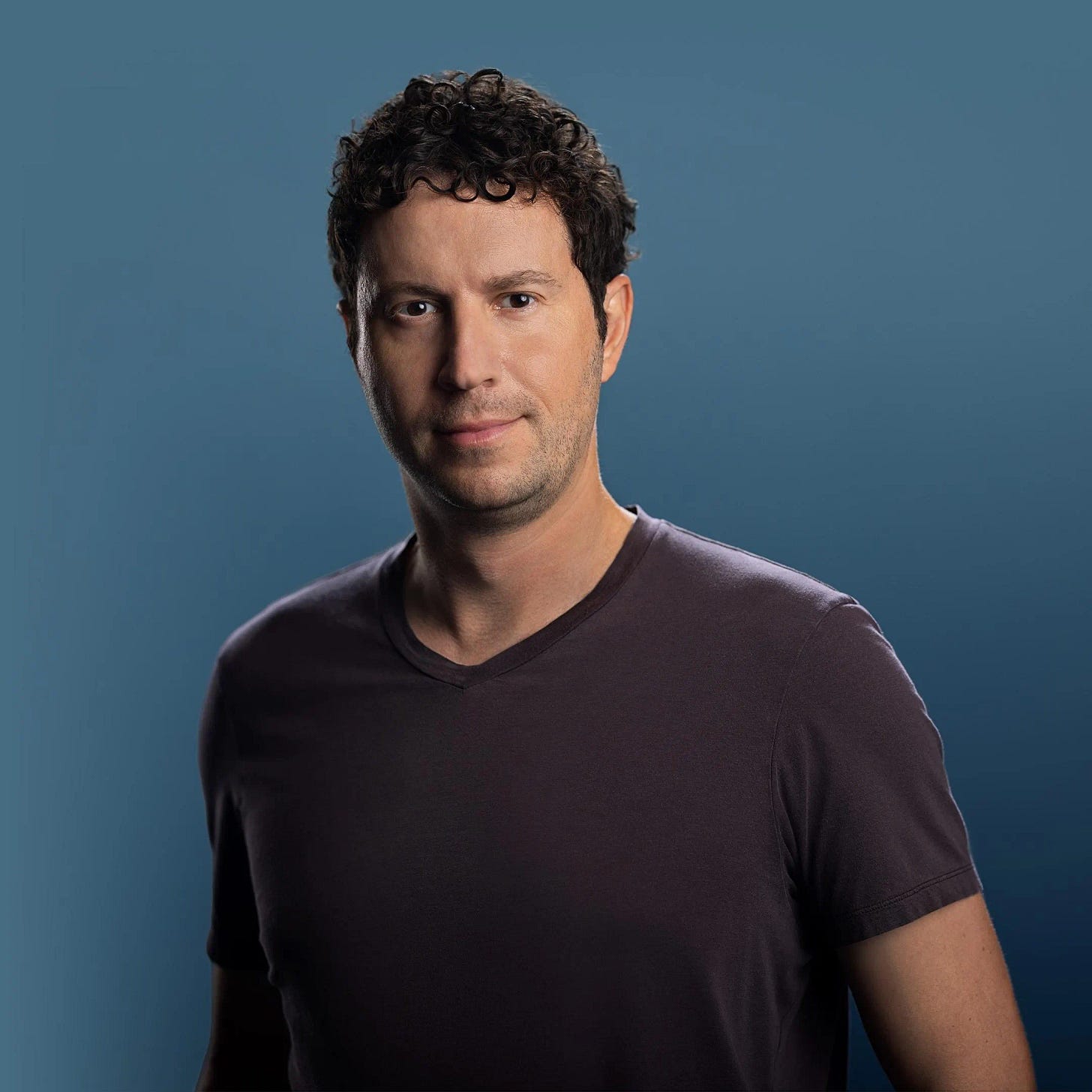
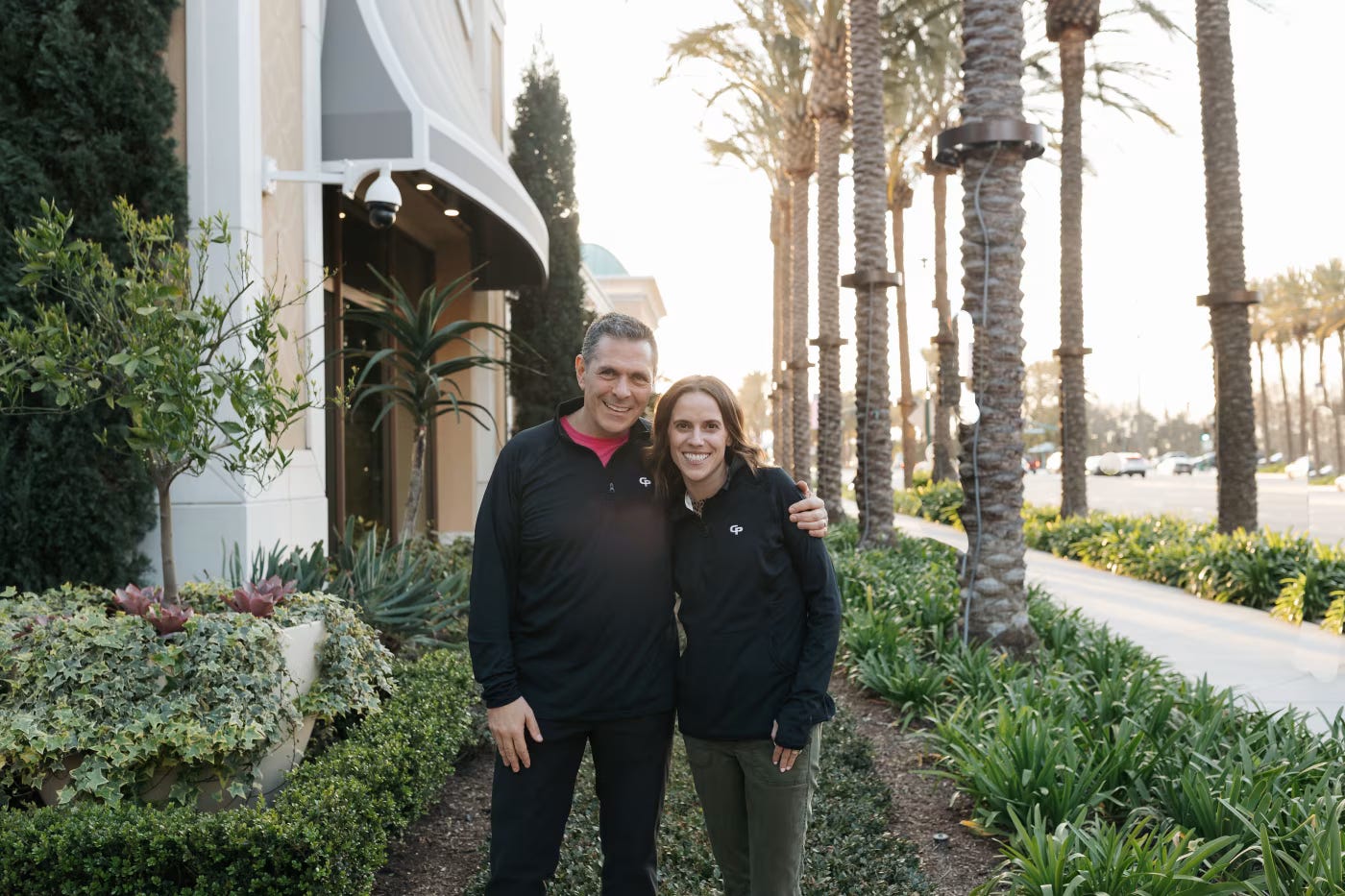
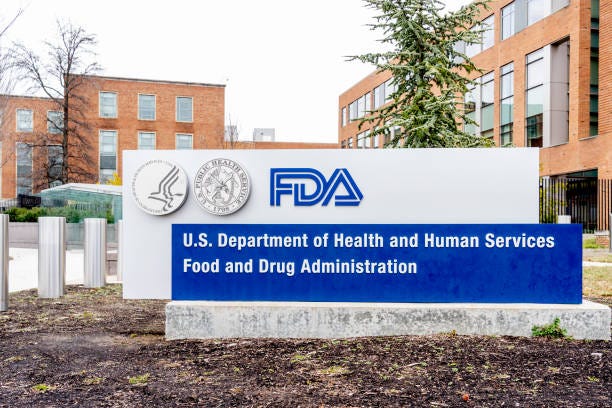
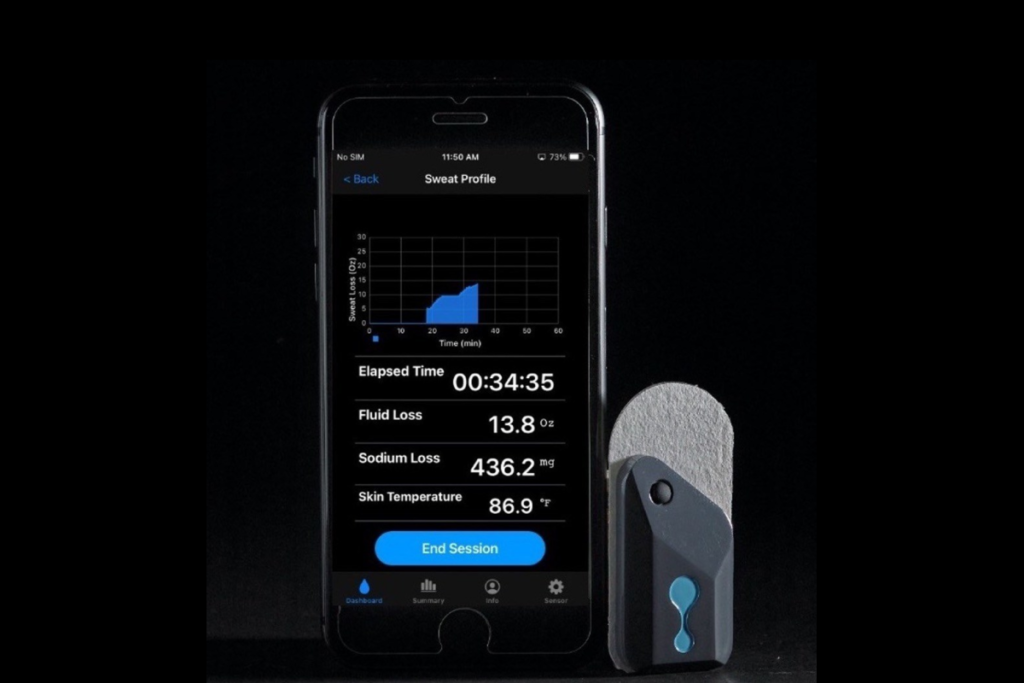


Hey Doc, love your summary of what vacation with your family in Paris did for you. It’s the truth. I think we need to keep encouraging each other in this lifestyle that is founded on rest, solid relationships, and a relationship with God. We’re made to have strength for more than we know. We’re made to be a blessing to others.
I'm adopting vacation as a longevity prescription for myself and patients. Love the details about really disconnecting, because that is what is needed not just saying i'm going on vacation but glue to emails and phones 24/7. Big up Dr. Luu for exemplary work.